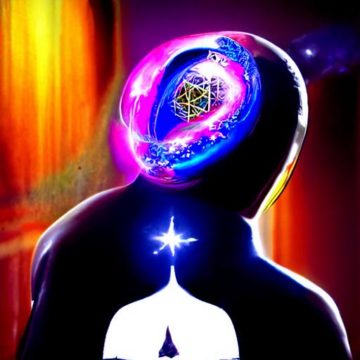by Jochen Szangolies

Reading the words ‘mind’ and ‘quantum’ in close proximity on the internet rarely inspires great confidence. Indeed, all too often, all this indicates is that you’re about a click away from learning about life-changing techniques of ‘Quantum Jumping’ to a parallel reality where all your wishes come true, using ‘Quantum Healing’ to ‘holistically’ heal the ‘bodymind’, and other What the Bleep Do We Know!?-esque nonsense. Therefore, in writing about the fraught intersection of quantum mechanics and the study of consciousness, one is faced first with the challenge of convincing the reader that there is actually something of value to be gained from investing their attentional resources. So let me first consider arguments against the relevance of quantum mechanics for consciousness.
First, of course, mere woo-by-association does not make a good argument. That people have misused the buzzwords of ‘quantum’, ‘mind’, ‘consciousness’ and the like to promote shoddy self-help strategies does not entail that they can’t be combined in a sensible, and ideally even illuminating, way. But there are commonly-cited objections that deserve serious consideration.
The most common is the ‘large, warm, and wet’-argument. Quantum mechanics is often (if somewhat misleadingly) considered to be the ‘science of the small’, whose effects are typically observed at length scales far removed from everyday sizes, and thus, from brains. Furthermore, quantum effects typically requires systems to be well-isolated from the environment, to not fall prey to decoherence effects. But brains aren’t generally thus isolated—indeed, in a sense, it’s the very point of a brain to interact with the environment. Finally, quantum systems, to limit interaction, often have to be cooled down to a few degrees above absolute zero, something that again isn’t conducive to the proper functioning of a brain. Read more »
